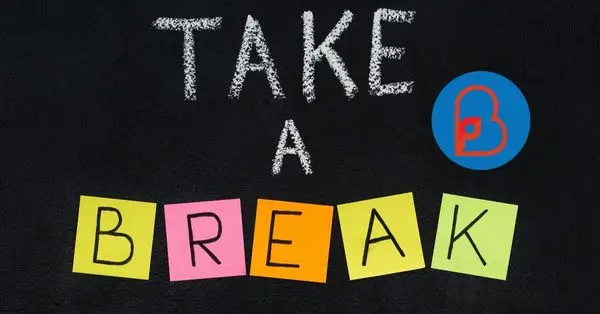Feeling unmotivated? It happens to the best of us. But that doesn’t mean you have to just sit there and take it. There are things you can do to get yourself moving again. In this article, we’ll share some of the best tips and tricks on how to motivate yourself. Trust us, you’ll be up and running in no time!
How To Motivate Yourself?
Self-motivation is an essential component of success, but it can be difficult to get yourself moving when you don’t have a clear goal in mind. One way to motivate yourself is to give yourself context.
When you understand the why behind your actions, it becomes easier to find the energy and willpower to take on whatever challenge comes your way. When you understand your goals, it’s easier to stay motivated and focused on the task at hand.

Make sure you write down your goals so that you can refer back to them regularly. Keeping a positive attitude will also help motivate you; remember that every obstacle is a chance for growth.
If you find that motivation is slipping, take a step back and reassess your goals. Once you have clarity on what’s important to you, taking action will be much easier. The best 16 tips for how to motivate yourself are:
1. Find Your Why
2. Set Realistic Goals
3. Make A Plan
4. Visualize Your Success
5. Remind Yourself of Why You Are Doing What You Are Doing
6. Make A Vision Board
7. Break It Down into Smaller Steps
8. Take Breaks When Needed
9. Exercise Daily and Stay Fit
10. Eat A Balance Diet Everyday
11. Get Enough Sleep Daily
12. Remove Distractions
13. Finding A Role Model
14. Surround Yourself with Positive People
15. Believe in Yourself
16. Be Grateful for Everything You Have
Find Your Why
When you’re trying to motivate yourself, it’s important to start by understanding your why. Why do you want to achieve this goal? What is the purpose behind it?
Once you know your why, you can begin to craft a plan that will help you achieve your goal. This plan should include both short-term and long-term steps.
Additionally, be sure to set a deadline for yourself and find a way to hold yourself accountable. Finally, remember that motivation is a journey, not a destination. There will be ups and downs along the way, but if you stay focused on your why, you’ll eventually reach your goal.
Set Realistic Goals
Setting realistic goals is a great way to motivate yourself. By setting goals that are achievable, you’ll give yourself something to work towards and feel a sense of accomplishment when you reach them.

Additionally, be sure to break down your goals into smaller, manageable steps so you don’t become overwhelmed. Taking things one step at a time will help you stay on track and motivated until you reach your final goal.
Must Read: How To Improve Your Mental Health
Make A Plan for what you want to be
Motivation can come from a variety of sources, be it external factors like money or fame, or internal factors like self-worth. Regardless of the source, motivation is important to achieve goals and reach our potential. To be motivated to give context one must first identify what one wants and make a plan to get there.
Often times we become so caught up in the daily grind that we forget what we want and how we can get it. Taking the time to make a plan will help you stay on track, focus on your goals, and achieve them.

Once you have identified your goal and created a plan of action, it is important to keep moving forward. If you stop working towards your goal you will lose motivation and may even abandon your plans altogether.
Remember, if at any point you feel unmotivated or lost during your journey toward context then take a step back and reassess your progress. However, if you take the time to create a roadmap for success then success is guaranteed!
Visualize Your Success
There is no doubt that visualization can be a powerful tool for achieving success. A recent study published in “The Journal of Positive Psychology” found that people who visualized themselves in successful situations were more likely to achieve success than those who did not visualize themselves in such situations.
The study participants were asked to imagine a specific scenario in which they had succeeded and then write about it. Those who visualized themselves succeeding were more likely to report having high self-esteem, feeling competent, and enjoying their work than those who did not visualize themselves succeeding.

Visualization can be an extremely helpful tool for motivating yourself to achieve success. It has been proven to increase self-esteem, feelings of competence, and enjoyment of work. Therefore, by visualizing your success, you are more likely to achieve it.
Remind Yourself of Why You Are Doing What You Are Doing
Motivation is what gets us out of bed in the morning and throughout our day. It’s what gets us to continue working when we don’t feel like it, and it’s what makes us strive for something even when we don’t know how to achieve it. Motivation is essential for success, but it can be difficult to find. Here are a few ways to motivate yourself:
1. Reflect on why you are doing what you are doing. What is the goal? What is the outcome you want? When you focus on these things, it becomes much easier to keep going even when things get tough.
2. Reward yourself for your progress. This could be anything from taking a short break after completing a challenging task to enjoying a favorite activity after accomplishing a major goal! Doing something that brings you joy helps boost your motivation and keeps you motivated toward future goals.

3. Talk about your motivation with others. When we share our goals and how we’re trying to achieve them, it can help boost each other’s spirits and help us stay focused on our goals. Communicating with others can also provide valuable feedback that can help us improve our technique or strategy.
4. Set specific goals and timelines. This can help you stay on track and achieve your objectives more quickly. Breaking down a goal into smaller, more manageable steps also helps to ease the mental strain and allows you to focus on each step instead of feeling overwhelmed by the entire goal.
5. Keep a positive attitude. Even when things are tough, try to remain upbeat and take things one day at a time. Dwelling on Negative Self-talk can actually lead to feelings of hopelessness and defeatism, which will only impede your progress.
Make A Vision Board
Making a vision board is a great way to motivate yourself to achieve your goals. Vision boards are like road maps that show you where you want to go and how you can get there. They help you visualize your success and keep you on track. Here are four tips for making a vision board:
1. Choose a theme or subject that interests you.
2. Find images or objects that represent this theme or subject.
3. Arrange these images and objects in an interesting way on your board.
4. Write down your goals or plans for achieving this theme or subject, and keep the vision board near your work area as a reminder of your goals.
Break It Down into Smaller Steps
When it comes to motivation, one of the best things you can do is break your goal down into smaller steps. This way, you don’t feel overwhelmed by the task at hand and you’re more likely to stick with it.
For example, if you’re trying to lose weight, rather than setting a goal of losing 20 pounds, start by aiming to lose just 2 pounds per week.
Or if you’re trying to save money, rather than setting a goal of saving $1,000 in one month, try saving $50 per week instead. Smaller goals are easier to achieve and will keep you motivated in the long run.
Take Breaks When Needed
When it comes to productivity, many people believe that taking breaks is optional. However, research has consistently shown that taking regular breaks helps us focus and stay productive. A recent study published in the journal “PLoS One” found that brief periods of rest increased creativity and problem-solving abilities.
Taking breaks can also help us avoid burnout. According to the National Institute of Mental Health (NIMH), burnout is a syndrome characterized by feelings of exhaustion, cynicism, and reduced productivity.

Symptoms typically develop after a person has worked excessively hard for a long period of time or in difficult conditions. Burnout can lead to stress-related health problems, such as heart attacks or strokes. So why are breaks so important?
Taking them allows our bodies and brains to rejuvenate and refresh themselves. This gives us the energy we need to continue working productively. In addition, taking regular breaks helps us avoid becoming emotionally stressed out or bored from staying in one place too long.
Exercise Daily and Stay Fit
Exercise has been shown to be beneficial for overall health and well-being. It can help you lose weight, develop better cardiovascular health, and reduce your risk for many chronic diseases. In addition, regular exercise can also help improve mood and mental health.
There are many benefits to exercising regularly, but staying fit doesn’t have to be difficult or time-consuming. There are a number of simple measures you can take to get started:
-Start by calculating your basal metabolic rate (BMR) using an online calculator like the ones available at www.shape.com or www.myfitnesspal.com

-Then create a fitness plan that incorporates the minimum amount of activity required to maintain your current weight and BMR
-Make sure you include aerobics as well as strength training and flexibility exercises
-Perform each exercise with proper form and intensity so that you don’t overwork or injure yourself
-Maintain a healthy diet throughout the week in order to support your workout efforts
Eat A Balance Diet Everyday
The American Dietetic Association (ADA) recommends that adults consume a diet that is balanced and includes both lean and healthy protein foods and whole grains. A diet that is generally low in saturated fat, cholesterol, and sodium, as well as moderate in carbohydrates, helps control blood sugar levels and provides the body with the nutrients it needs to function at its best.
In order to achieve a balanced diet, people need to eat a variety of foods from all food groups every day. Some examples of foods from all food groups are fruits and vegetables, meat, poultry, fish, legumes (beans), dairy products, grains (whole-grain slices of bread and cereals), sweets, and snacks.

Eating a balanced diet every day can help you maintain a healthy weight, reduce your risk for heart disease, type 2 diabetes mellitus, and some forms of cancer including breast cancer and prostate cancer; improve your sense of well-being; plus give you energy for daily activities.
Get Enough Sleep Daily
Sleep is an important part of a healthy lifestyle and helps to improve mood, focus, and memory. Getting enough sleep each day can help to reduce stress levels, maintain a healthy weight, and improve overall health.
While there are many different ways to get enough sleep each night, following a few simple guidelines can help ensure that you’re getting the sleep you need:
Try to go to bed and wake up at the same time every day. This will help your body adjust its natural rhythm and promote consistent sleep patterns.

Avoid watching television or using electronic devices in bed before bedtime. These activities may interfere with your ability to fall asleep quickly and may lead to restless nights.
Avoid caffeine after 3 p.m., as it will disrupt the natural production of melatonin in your body. Melatonin is known for its ability to promote relaxation and ensure sound sleep.
Remove Distractions
One of the most important things you can do when trying to motivate yourself is to remove distractions. This means turning off your phone, closing social media tabs, and anything else that might take your attention away from what you’re trying to do.
When you have fewer distractions, it’s easier to focus on the task at hand and get it done quickly. Additionally, removing distractions can help reduce stress levels, which can also make it easier to stay motivated.
Finding A Role Model
It can be beneficial to identify a role model or someone who has already accomplished what you are aiming for when you are attempting to motivate yourself. Seeing someone else accomplish your goal might inspire and motivate you to keep going because it can make you understand that it is feasible.
Of course, it’s important to find a role model who is relatable and inspiring, rather than someone who seems unattainably perfect or out of reach. Once you’ve found a few potential role models, take some time to learn about their stories and what they did to achieve their goals.
This will give you a better sense of what it takes to succeed, and it might just give you the boost you need to get started.
Surround Yourself with Positive People
Maintaining motivation can be tricky, particularly when you’re depressed or dealing with adversity. Having positive people around you is one of the finest strategies to keep oneself moving forward.
It’s simpler to notice the positive aspects of your own life and circumstances when you’re surrounded by positive and encouraging people. Additionally, while you’re struggling, optimistic individuals might offer insightful counsel and perspective.
Avoid spending time with people who make you feel bad about yourself if you find yourself in an environment where negativity is prevalent. Believe in Yourself If you want to learn how to motivate yourself, the first step is to believe in yourself.

When you have faith in your own abilities, it becomes easier to take risks and push yourself outside of your comfort zone. Additionally, self-confidence can help you stay calm under pressure and persevere through difficult challenges.
If you don’t believe in yourself, it will be harder to find the motivation to keep going when things get tough. So, start by building up your self-belief – it’ll make it that much easier to achieve your goals.
Be Grateful for Everything You Have
Motivation can come from anywhere, and it’s often a matter of finding the right mix of inspiration and encouragement. Sometimes all you need is some perspective on what you have, rather than focusing on what you don’t.
Take a moment to reflect on your life in terms of all that you are grateful for. It could be specific things like your health or family, or more general things like good fortune or natural resources that are important to you.
When we focus on what we have rather than what we don’t, it can help us stay positive and motivated in the face of challenges.

- Be grateful for everything you have, even the smallest things. Be grateful for your health, your family, your friends, your job, your home, and your possessions. Be grateful for the air you breathe, the food you eat, and the water you drink. Be grateful for the clothes you wear and the bed you sleep in.
- Be grateful for the roof over your head and the shelter it provides. Be grateful for the warmth of the sun and the light of the stars. Be grateful for the rain that waters the plants and the snow that blankets the ground.
- Be grateful for the birds that sing and the bees that buzz. Be grateful for the flowers that bloom and the trees that provide shade. Be grateful for the animals that share the earth with us and the insects that help pollinate the plants.
- Be grateful for the Earth that sustains us and the Universe that surrounds us. Be grateful for everything you have, no matter how big or small.
Conclusion
Thanks for reading! I hope these tips on how to motivate yourself were helpful. If you’re struggling to stay motivated, it’s important to find your why. Once you know about it, you can set realistic goals and make a plan to achieve them. Your goals will appear more attainable if you break them down into manageable chunks, and avoiding distractions will keep you on target. You may stay motivated by finding a role model and surrounding yourself with good individuals. Finally, it’s important to have confidence in oneself. No one will have faith in you if you don’t.
How To Motivate Yourself – FAQs
What are some things that help you stay motivated?
When it comes to staying motivated, I think it’s important to have a clear goal in mind. For me, this usually revolves around helping my clients achieve their goals and objectives.
It’s also helpful to have a set timeline for completing the task at hand, as well as a plan for how I’ll measure success. Lastly, setting small goals along the way can keep me on track and motivated.
How do you keep yourself motivated when things get tough?
Motivation is a delicate balance. On the one hand, you want to give your employees the freedom and autonomy to be creative and innovative. On the other hand, you don’t want them to burn out or become undisciplined. The key is finding the right mix of encouragement and supervision.
In order to keep yourself motivated during tough times, make sure you have a clear vision for your career and what you want to achieve. Also, make sure you set realistic goals that are achievable within given time constraints.
Finally, be available to provide encouragement and feedback when needed – this will help your employees remain focused on their goals.
What do you do when you’re feeling unmotivated?
Motivation is a difficult thing to come by, especially when you’re feeling unmotivated. However, there are ways to motivate yourself even if you don’t feel like it. Try setting small goals that you can accomplish easily and focus on the progress you’re making rather than the goal itself.
Find someone who will inspire you and be willing to help push you when needed. Lastly, take some time for yourself every day and do something that makes you happy or relaxes you. That way, when motivation does come along, it’s more likely to stick around.
Why is it important to stay motivated?
Motivation is a key ingredient in any successful endeavor. It can be the difference between giving up and continuing on, between success and failure. While there are many different types of motivation, staying motivated often boils down to one thing – providing context.
Context is what tells us why we’re doing something, why it matters, and how our actions will impact others. When we understand the context of our goals, it becomes much easier to stay focused and motivated. In fact, research has shown that when we have a clear goal, motivation comes easily.
However, when we lack context or don’t know why something is important to us, it becomes much harder to focus on our task at hand.
This can be problematic in many areas of life – work specifically – where success often hinges on getting things done efficiently and effectively. When goals are unclear or unimportant, workers become less likely to persevere because they don’t understand the stakes or how their effort will benefit others.
Poor motivation also leads to decreased productivity and increased errors in judgment. Simply put, without context anything becomes more difficult which can lead to frustration and setbacks down the road – not what you want as an individual or
What are the benefits of being motivated?
Motivation is a powerful tool that can help people achieve their goals. It can improve performance, increase motivation, and even create lasting changes in behavior. There are many benefits to being motivated, including:
Improved Performance: When people are motivated, they are more likely to be productive and efficient. They will be able to focus on the task at hand and complete it quickly and efficiently. This leads to better results and faster progress.
Increased Motivation: Motivation is essential for helping people stay focused and motivated throughout their day-to-day lives. When people are motivated, they are more likely to find things enjoyable and rewarding. This can lead to long-term success in endeavors or careers.
Lifelong Changes: The benefits of motivation aren’t limited to short-term goals or projects. In fact, many of the changes that occur as a result of motivation last throughout an individual’s life span.
When people are motivated, they tend to make decisions based on what is best for them rather than what other people might want them to do. This can lead them down new paths or create positive changes in their lives that would not have otherwise occurred.
What’s the difference between being motivated and being driven?
Motivation is feeling a sense of wanting to do something, while the drive is being driven by a force or compulsion. Motivated people are driven by their own interests and motivations, while driven people are pushed by external factors.
One way to distinguish between the two is to think about how motivated individuals behave versus how driven individuals behave. Motivated individuals are more likely to take the time to consider the consequences of their actions before taking them, whereas driven individuals are more likely to act impulsively without considering the consequences.
Another difference between motivation and drive is that motivated individuals are more likely to stay focused on their goals, even when faced with obstacles. Driven individuals may become frustrated or give up when faced with obstacles since they’re not actually trying to achieve anything themselves – they’re just following a completely different set of rules.
How can you make motivation a habit?
Motivation is a tricky thing. It can be easy to lapse into an “if only” mentality, where we dwell on the things we lack and forget about the things we have. But that’s not how success works. Successful people are proactive and they set goals that are achievable but also motivating.
They give themselves context—they understand their own strengths and weaknesses, what they’re good at, and what they need to work on, in order to achieve their goals. They look for opportunities to grow as individuals and as professionals so that they can become even more successful.
The first step is recognizing your own motivation needs. Once you know what gets you fired up, you can start planning around it—building in moments of self-care or restorative activities that will help restore your energy levels when you hit a lull.
And finally, remember that success isn’t about single events or accomplishments; it’s about making progress over time. Celebrate the wins along the way, but don’t lose sight of your ultimate goal—and don’t forget to motivate yourself along the way!
What are some tips for staying motivated when pursuing your goals?
1. Set realistic goals and deadlines
2. Find an achievable goal that you are passionate about
3. Visualize your success
4. Make a plan and stay on track
5. Celebrate your successes along the way!





